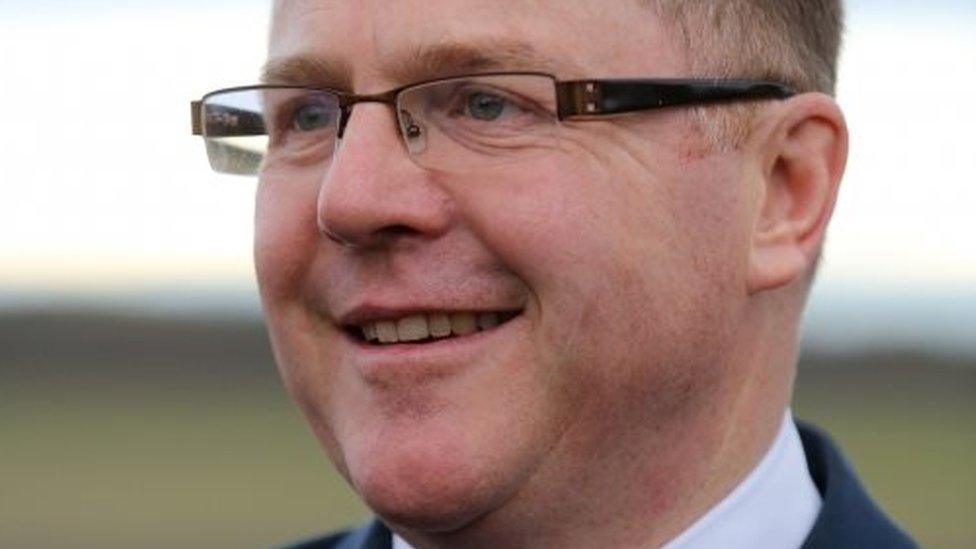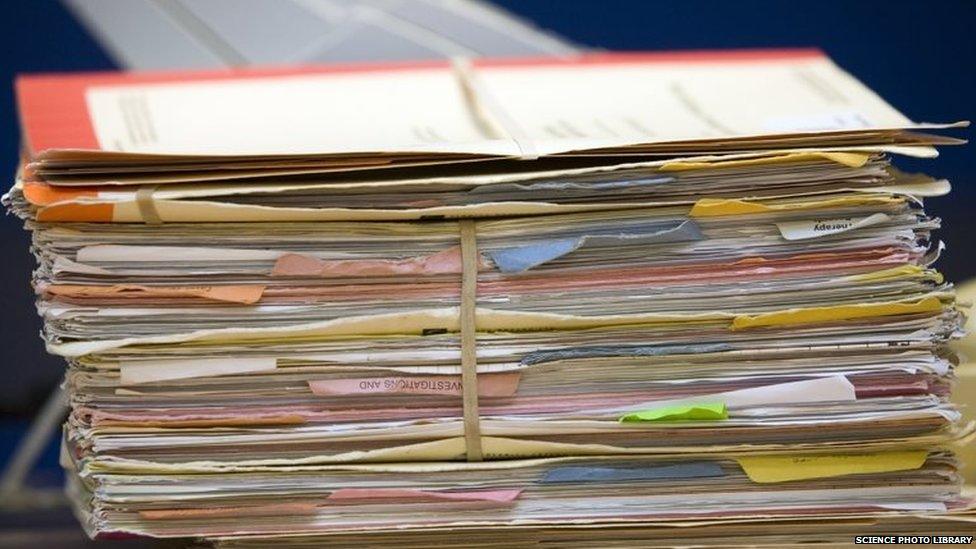MP's 'horror' at getting £4.2bn to digitise NHS with no plan
- Published

A former minister has described his "horror" at being handed £4.2bn to create a "paperless" NHS in England by 2020 without a plan how to do it.
George Freeman's role was digitizing the NHS - but he had not been involved in the 2016 public spending talks.
And he said his civil servants were ordered to set out how they would spend the money only after it was allocated.
This is how things are done in government, said Mr Freeman, and, he suggested, why they go wrong.
"The deal was done between Jeremy (Hunt) and George (Osborne) - it was a good thing, a big chunk of money to digitalize the NHS," he told a fringe meeting at the Conservative conference.
As Life Sciences Minister he belonged to two departments - business and health - so was frozen out of the spending talks.
His civil servants were delighted to have secured the money, he said, but when they were asked to produce a delivery plan, involving 26 different "work streams", the "system" proved incapable of doing it.
And when he visited the team charged with designing the new digital health care system, he found "they had been hired from Shoreditch" and were "in a little hot house with bean bags and white boards and Post-It notes everywhere".
The designers were "nice people", he added, but they had based their work on academic literature rather than the experiences of patients and clinicians as he believed it should have been.

The NHS still relies on paper records, says George Freeman
Mr Freeman revealed the "horror story" at a fringe meeting at the Conservative conference to illustrate his point that "top down" solutions never work.
"The Treasury should have said you are not even having a penny until we have got your delivery plan and until we know that you are not just going to buy a system off the shelf from some big company," he told the Taxpayers' Alliance meeting.
Governments have been promising a paperless NHS since 1992 - and the previous Labour government spent billions on a patient record system that has never worked in the way it was intended.
Mr Freeman said it was scandalous that the health service still relied on "paper and cardboard" - and 20-year-old computers - when doctors, nurses and patients all had smart devices that could be used to access records and online communities.
But he said the answer was "lots of local digital solutions" designed by doctors - and he claimed the IT industry would "quickly" work out how to get the different systems to talk to each other.
"Hiring an off-the-shelf big package from one of the big companies has been proven time and again to fail," he said.

How the future should look, according to the MP
Mr Freeman warned MPs at the time that the NHS Digital project was "complex and some things will not go according to plan" but he said he was committed to ensuring it was "properly managed with clear milestones and clear accountability procedures".
The Mid-Norfolk MP, who had a career as a biomedical venture capitalist before entering politics, was moved from his NHS digital role in July 2016 to head up incoming Prime Minister Theresa May's policy board. He resigned from that role in November last year.
The deadline for completing the paperless NHS project, now the responsibility of Health Secretary Matt Hancock, has, meanwhile, slipped from 2020 to 2023, amid criticism it was too ambitious.